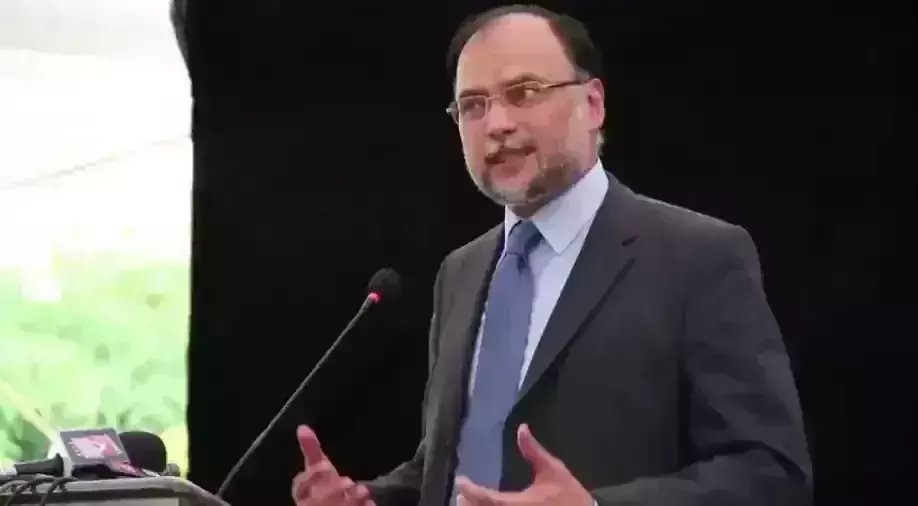
'Potentially catastrophic consequences' likely from India's Kashmir policies: Pak minister
text_fieldsPakistani Minister for Planning & Development, Ahsan Iqbal (file photo)
United Nations: Pakistan's Minister for Planning & Development, Ahsan Iqbal has warned that India's policies in Kashmir could have "potentially catastrophic consequences" from another conflict.
"If the tensions created by India's current policies in occupied Kashmir and aggressive postures are left unattended, it could lead to another conflict in the region with potentially catastrophic consequences," he warned at a news conference here on Wednesday.
Listing a host of complaints about India's treatment of the union territory, he said, "I emphasise the need to resolve the Jammu and Kashmir dispute in accordance with the resolutions of the Security Council and the wishes of the people of Jammu and Kashmir."
Pakistan has, however, ignored Security Council Resolution 47 adopted on April 21, 1948, that requires it to withdraw from all of Kashmir its nationals and tribesmen who had intruded there and not to give them any aid.
Iqbal admitted that his country's food situation is "fragile" and that it came to the "brink" of a Sri Lanka-like scenario but turned his attention to Kashmir, which does not face a "fragile" food situation like the part of it under Pakistan occupation.
"Pakistan's food security situation has become fragile (and) we will need to import wheat this year, whereas the supply chain of wheat at global level is already disrupted," Iqbal said.
The government of Prime Minister Shehbaz Sharif has taken some tough measures and "saved Pakistan from Sri Lanka-like situation where almost we were at the brink of that scenario".
"We had analysts predicting how many weeks it will take for Pakistan to become like Sri Lanka, but managed to avert it," he said.
In Washington, the International Monetary Fund announced on Wednesday that its staff had reached an agreement with Pakistan for $1.177 billion in emergency funding, but that would have to be approved by the Executive Board.
Iqbal said that his government would now have to stabilise the country's economy.
Sri Lanka is facing an economic and political meltdown because of a lack of foreign exchange to pay for energy and food imports leading to severe shortages.
Outlining its country's problems, Iqbal said, "Pakistan is facing challenges in food security, water security and energy security because of a whole host of issues ranging from climate change and global developments".
He blamed its food insecurity on insufficient investment in agriculture and climate change.
Asked by a reporter about reports that India was planning to host a meeting of the G20 — the group of developed and developing nations and the European Union — in Kashmir, Iqbal said that if countries participated in it there, it would amount to "validating" what he called India's "unilateral occupation of Jammu and Kashmir" and throwing "Security Council resolutions in the dustbin of history".
"If the Security Council has any sanctity, if its resolutions have any sanctity, I hope that the G20 countries will not violate the sanctity of those resolutions by going there and validating the unilateral occupation of Jammu and Kashmir," he said.
IANS with edits






















